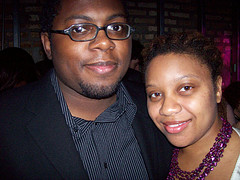The Medicinal Relationship
So, dig: there are three kinds of relationships here in the rasx() context: toxic relationships, narcotic relationships and medicinal relationships. The lifelong danger for me is that blurry distinction between medicine and toxin, often just a matter of dosage. And let’s not even get started with the line between narcotics and medicine…
 You may ask here in this second paragraph, “What the hell is this?” Well, glad you asked. Suppose you are tired of discussing the issues surrounding “Are white people inherently evil?” or “The words of an African king, 1792.” Let’s just suppose that you are well versed on how Europe underdeveloped Africa and now it’s time to do something about it—it’s time to start with you and the relationships you are involved in… Can you declare that most of your relationships are “medicinal”? Are you in control of how you participate in relationships? Are you just out of control? Every so-called “black movement” is going to be based on relationships. It follows that there will be no “black” anything when “we” can’t have even the simplest, broke-ass, tricycle-riding relationship. Do you ever wonder why there is no ghetto-famous black FaceBook.com or massively-underground black LinkedIn.com? It’s because “we” can’t even use frickin machines to help us develop and maintain relationships—I’m not talking about sex or drug relationships—I’m talking about something as simple as a regular dose of walking in the park.
You may ask here in this second paragraph, “What the hell is this?” Well, glad you asked. Suppose you are tired of discussing the issues surrounding “Are white people inherently evil?” or “The words of an African king, 1792.” Let’s just suppose that you are well versed on how Europe underdeveloped Africa and now it’s time to do something about it—it’s time to start with you and the relationships you are involved in… Can you declare that most of your relationships are “medicinal”? Are you in control of how you participate in relationships? Are you just out of control? Every so-called “black movement” is going to be based on relationships. It follows that there will be no “black” anything when “we” can’t have even the simplest, broke-ass, tricycle-riding relationship. Do you ever wonder why there is no ghetto-famous black FaceBook.com or massively-underground black LinkedIn.com? It’s because “we” can’t even use frickin machines to help us develop and maintain relationships—I’m not talking about sex or drug relationships—I’m talking about something as simple as a regular dose of walking in the park.
Using the word medicinal with ‘relationship’ means:
- The relationship is for health.
- The relationship takes place based on that which is prescribed.
- The relationship is rhythmic.
 The last point above is very, very important to me. It comes with an “abstract” or esoteric understanding of rhythm and should make the self-proclaimed “average American of color” think twice when I make the flippant statement that too many Black people today have no rhythm—this is not to suggest that people not “of color” can dance. I’m just going for sad irony here… Almost all of Black music and dancing is for sale and confined to plastic shrink wrap and digital ones and zeroes of the black-and-white bottom line. Few of us use this rhythm for our health. Few of us understand holistic rhythm from the Olden Times as our very hearts beat keeping us alive at this very moment.
The last point above is very, very important to me. It comes with an “abstract” or esoteric understanding of rhythm and should make the self-proclaimed “average American of color” think twice when I make the flippant statement that too many Black people today have no rhythm—this is not to suggest that people not “of color” can dance. I’m just going for sad irony here… Almost all of Black music and dancing is for sale and confined to plastic shrink wrap and digital ones and zeroes of the black-and-white bottom line. Few of us use this rhythm for our health. Few of us understand holistic rhythm from the Olden Times as our very hearts beat keeping us alive at this very moment.
You can hear the empty, one-dimensional rhythm in a typical, modern conversation. A conversation where I am talking to you and I say:
“The relationship takes place based on that which is prescribed.”
“Okay,” you say.
“This means that people might preserve beforehand how they should relate.”
“Umm hmm…”
“Should not every free person—especially women—take such sovereign command?”
“Sure.”
 So there is rhythm here but it is pallid. The person providing “feedback” is only making noises, waiting for the conversation to be over… (or worse, their “turn” to talk…) I suspect it’s because the subject of the conversation is so freaking weird—especially because the topic is so far from the narcosis of pleasure.
So there is rhythm here but it is pallid. The person providing “feedback” is only making noises, waiting for the conversation to be over… (or worse, their “turn” to talk…) I suspect it’s because the subject of the conversation is so freaking weird—especially because the topic is so far from the narcosis of pleasure.
Let me try to make it not so weird. Have you read any formal research finding that adults have a sense of wellbeing while holding a healthy baby? Unfortunately, since I am a lowly Blog writer, I can’t find that research right now but I trust my childhood, nerd memory on these matters. When I actually began to hold babies as an adult (in my thirties), not only did they make me relax, I found that my person could make them relax by singing a song that put me in a trance—which also put them in a trance and then to sleep. For me, since my descent (and ascent) is African, finding the right song with the Olden Times feeling was not that hard. Anyway, this is how my curiosity about the medicinal relationship began…
My interest increased by orders of magnitude when I heard this female Black psychologist, in a recording somewhere on the LIB, declare that the simple cure for many of her Black depressive patients is to simply hang out with other Black people. (I assume the psychologist is talking about extremely valuable functional Black people—not just a bunch of knuckleheads.) Again, my lowly documentation on this is not here yet—but I’m working on it…
While my weird research continues, let’s look for the presence of the need for medicinal relationships in the cesspool of the “mainstream.” Since the business world is what most “normal” Americans respect (fear), “we” can flippantly research the desperate need for quality feedback in the American workplace. Some guy named Paul Blaum wrote an article called “Good feedback key to resolving workplace problems” that was abandoned sometime after 1996 by Penn State research. Blaum quotes William J. Rothwell when he writes:
“The most commonly cited cause of worker performance problems was not lack of ability, tools or motivation but lack of feedback on consequences,” Rothwell said. “The second most significant cause of performance problems was lack of timely feedback on performance; the third, lack of assigned responsibility.”
On the other hand, the three most effective solutions identified by survey respondents were providing workers with clear, unambiguous feedback about how well they are doing; giving workers the information they need to function competently; and improving timely information during performance.
Years of experience informs me that my relationships in the workplace and in my personal life are deathly devoid of people providing “clear, unambiguous feedback.” (This is one of the many reasons I enjoy working with information technology in the workplace because these mechanical systems provide excellent feedback.) My assertion is that this lack of direct human feedback is not healthy for me. A sad irony is that more experience informs me that most people hate “clear, unambiguous feedback” because of some sadistic relationships they either have experienced personally (usually within the family during their formative years) or saw one night on cable and then tried to “fit in.” This often violent lack of interest in sharing or listening to opinions is all about a fear of being dominated or a fear of being humiliated—and traditionally oppressed people—especially the oppressed women—are extremely susceptible to this fear. These are just my “strong” opinions. My apologies for seemingly dominating the conversation…
“You think we are talking for our health?” you say sarcastically…”
“Why, yes…,” said seriously but mistaken for more sarcasm.
 Remember in grade school where most of the girls would never admit that they had a crush on some boy? Remember when the boy would lie about treating the girl kindly? The surprise to me is that in my experience these childish systems of denial continue well into adulthood. When was the last time you heard someone say that we are together because it’s healthy? Remember that we still inherit from a woman’s world where sex is dirty and “all men ever think about” is sex—so the thoughts of men must be dirty—so all men must be toxic. How can a liberated woman of the new millennium ever claim that her man improves her health and not be frowned upon by her bestest girlfriends?
Remember in grade school where most of the girls would never admit that they had a crush on some boy? Remember when the boy would lie about treating the girl kindly? The surprise to me is that in my experience these childish systems of denial continue well into adulthood. When was the last time you heard someone say that we are together because it’s healthy? Remember that we still inherit from a woman’s world where sex is dirty and “all men ever think about” is sex—so the thoughts of men must be dirty—so all men must be toxic. How can a liberated woman of the new millennium ever claim that her man improves her health and not be frowned upon by her bestest girlfriends?
“So, baby, can I have your phone number, email?”
“Did you just call me baby?”
“Hey, I’m the father of three children. You don’t know what I mean when I say the word baby.”
“Well, I think you better go see how they doing—ain’t none of your babies over here…”
“Looks like I said the wrong thing. See you later.”
We know how to end relationships far better than we know how to keep them and nurture them. “The passion of lovers is for death…”

Comments
cnulan, 2007-11-08 17:40:26
The same as the orthodox meaning of "church". Black is a communion of persons participating in the emergent interpersonal properties arising from our unique protective and developmental psychological adaptation and social configuration in America.
It's really not that complicated....,